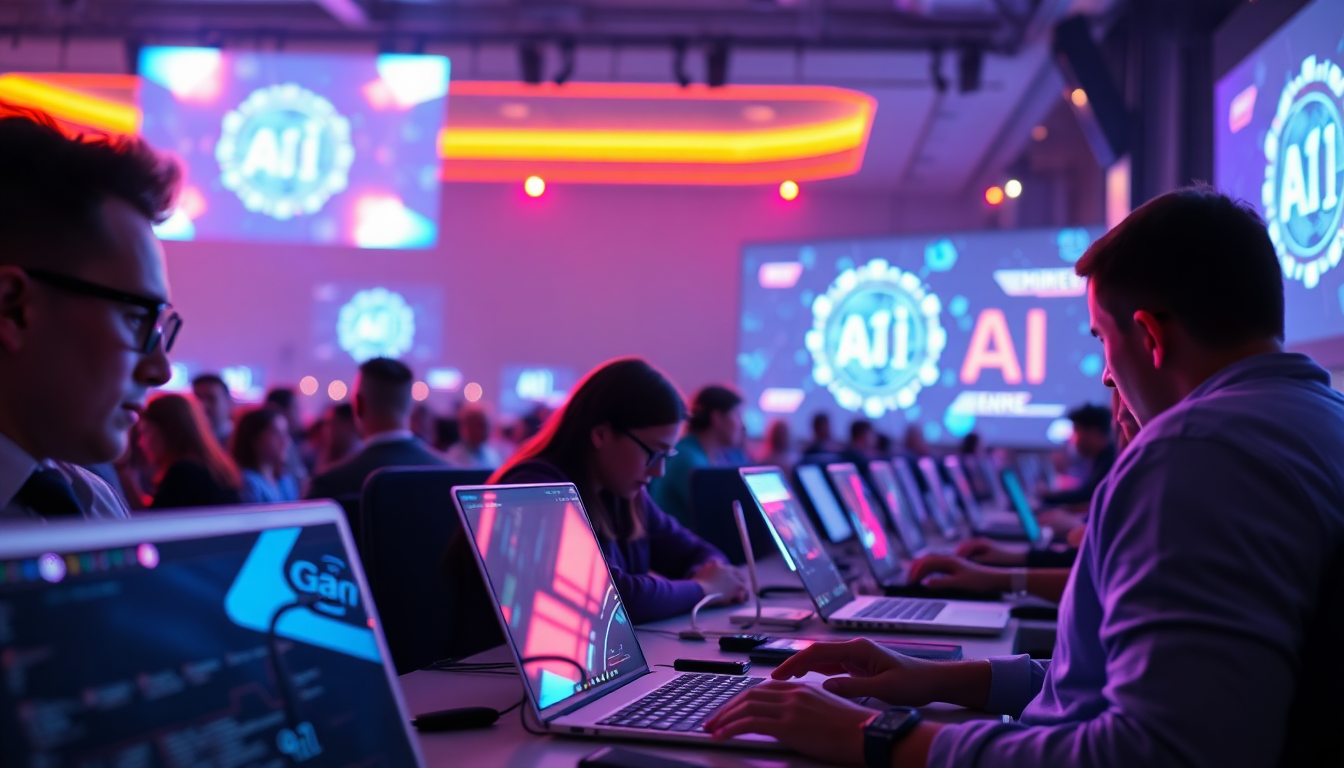OpenAI’s Dominance: Why ChatGPT Became a Coder’s Best Friend
For many software engineers, ChatGPT is more than just a conversational assistant. It’s their secret weapon—a tool to write, debug, and translate code efficiently, all in one place. Since launching ChatGPT for developers, OpenAI has quietly turned the platform into a multibillion-dollar business. With thousands of programmers using it daily, the platform has evolved into an essential part of the coding ecosystem, offering quick fixes and language translations that were once tedious tasks.
OpenAI’s AI tools aren't just an add-on; they’ve become deeply integrated with developers' workflows, including inside Microsoft’s Visual Studio Code. The ability to generate functional code snippets on the fly, solve complex programming problems, and correct errors has made ChatGPT indispensable. But now that Anthropic has entered the field, OpenAI is under pressure to keep its edge.
The Rise of Anthropic: A New Challenger Enters the Field
Founded by former OpenAI employees, Anthropic has emerged as a serious contender in the AI space. Unlike many startups aiming for niche markets, Anthropic is gunning for the heart of software development—the same territory where OpenAI reigns. Anthropic’s mission to build safe and explainable AI tools resonates with developers and enterprises alike, appealing to those who want powerful, yet ethically-grounded, solutions.
This competitive pressure has prompted OpenAI to ramp up its development efforts. Anthropic’s tools are gaining traction, and developers are curious to see if their models can provide a better coding experience than ChatGPT. The race is no longer just about convenience; it’s about who can redefine the future of software development first.
What’s Next for OpenAI? Bigger, Better, and Smarter AI Tools
OpenAI isn’t taking the competition lightly. Behind the scenes, they are doubling down on making ChatGPT even more integrated into major code editors. One of their biggest moves? Deeper integration with Visual Studio Code to ensure developers can seamlessly use AI-powered coding tools without leaving their environment. Imagine asking ChatGPT to refactor an entire section of code or add documentation—right from your editor window.
OpenAI’s goal goes beyond just writing snippets of code. They’re also working on AI systems that can handle complex software tasks, from building full-fledged applications to managing version control autonomously. If they succeed, ChatGPT could become the go-to assistant not just for individuals but for entire development teams, automating repetitive tasks and freeing up engineers to focus on innovation.
Google Watches From the Sidelines (For Now)
While Google has been a formidable player in AI, it seems to be trailing behind in the race to dominate AI-assisted software development. Anthropic and OpenAI’s aggressive moves into the coding space have caught many off-guard, including Google. The company has tried to push its Google Gemini AI into the development space, but so far, Gemini hasn’t managed to steal the spotlight from ChatGPT.
Still, with Google’s deep pockets and research capabilities, it would be foolish to count them out. The question remains: Will Google make a surprise comeback, or will OpenAI and Anthropic leave them in the dust?
The Future of Software Development: A World Where AI and Coders Collaborate
The endgame for both OpenAI and Anthropic isn’t just about market dominance—it’s about transforming how software is built. In the near future, software developers could spend less time on tedious tasks like debugging and more time on creative, high-level work. AI tools might handle everything from code refactoring to deployment, with developers guiding the process rather than doing the heavy lifting themselves.
Imagine a world where your AI assistant handles your Git commits, optimizes code performance, and even suggests new features, all while you focus on the bigger picture. That’s the vision both OpenAI and Anthropic are chasing—a future where AI-enhanced programming tools allow developers to achieve more in less time.
A Tug-of-War Between Innovation and Ethics
While the competition between OpenAI and Anthropic promises rapid innovation, it also raises important questions. How do we balance speed and safety in a world where AI is taking over critical coding tasks? And what happens when AI tools become smarter than the developers themselves?
Anthropic has built its brand on creating ethically sound AI models, but OpenAI’s aggressive pursuit of functionality may appeal more to developers who prioritize performance. This tug-of-war between innovation and ethics will shape the future of not just software development, but how society interacts with AI as a whole.
What’s Your Take? Join the Conversation
Will OpenAI's ChatGPT remain the dominant force in AI coding, or will Anthropic steal the spotlight with safer, smarter tools? And where does Google fit into all of this? We want to hear from you!
Join the discussion in the comments below and let us know which platform you think will shape the future of software development. Will AI assistants replace the need for traditional coders, or will the human touch always be irreplaceable?
Become a permanent resident and eventually a citizen of the "Shining City on the Web". Join the iNthacity community and stay ahead in the ever-changing landscape of technology and development.
Disclaimer: This article may contain affiliate links. If you click on these links and make a purchase, we may receive a commission at no additional cost to you. Our recommendations and reviews are always independent and objective, aiming to provide you with the best information and resources.
Get Exclusive Stories, Photos, Art & Offers - Subscribe Today!
























Post Comment
You must be logged in to post a comment.